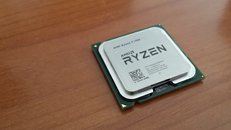
Arctic Cooling Unveils "MX Authenticity Check" System - Notices Increase of Counterfeit Thermal Pastes
Arctic Cooling's various thermal paste products have existed as favorite mainstays for PC builders—be it hobbyists, professionals, or influencers. Unfortunately, the disappointing presence of low-grade knock-off units has soured largely good impressions of modern MX-4 and MX-6 lines. Earlier today, Tom's Hardware put a spotlight on the Swiss-founded firm's brand-new "MX Authenticity Check" system. Worried customers can check the provenance of recently purchased Arctic thermal pastes (with updated packaging); via a QR code-based checker—the real deal will ensure "safety with genuine Arctic quality." The company's latest announcement outlined/reiterated the importance of a truly effective solution: "thermal paste plays a central role in any PC build that relies on effective cooling, as it ensures optimal heat transfer from the processor to the heat sink." In further correspondence—beyond an initial introductory email—an Arctic representative disclosed that this fresh anti-piracy strategy was rolled out in response to an uptick in counterfeit products appearing across markets. Their MX Authenticity checking program is easy to use, and authentication takes "just a few seconds." Tom's Hardware summarized this process: "in brief, when you receive your new thermal paste from Arctic or one of the many retailers that carry these compounds, you first check the seal, scratch it to reveal a QR code, scan it with your mobile, and then verify it online."




















